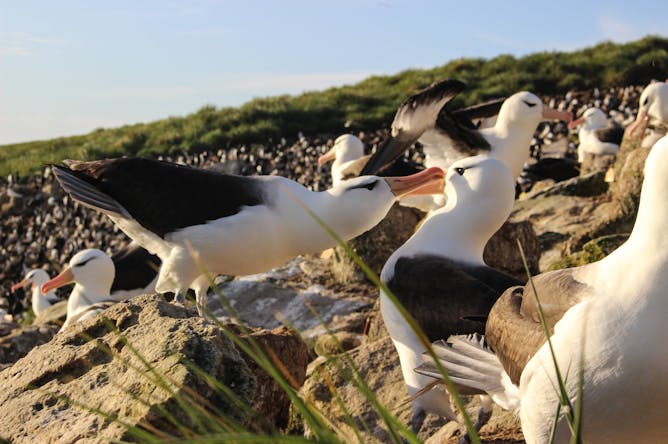|
Pfizer, Moderna, AstraZeneca – all became household names as COVID-19 vaccines were developed and rolled out. Surveys indicate that the pandemic has been transformational for the image of big pharmaceutical firms.
But what now for this often controversial sector? Will the way vaccines and medicines are developed and distributed change as a result of the coronavirus experience? What will it all mean for healthcare around the world? In the latest episode of The Conversation Weekly, leading researchers consider the future of “planet pharma”.
The podcast draws from a series of research-based articles published across the network in recent months exploring the business of the pharmaceutical industry. You can read them here, and we’ll have more on the subject in English, French and Spanish in the days ahead. Meanwhile, the emergence of the Omicron variant has revived fears of further coronavirus waves. Keep an eye on all our COVID coverage.
Enjoy reading and listening. And, please do stay safe.
|

Bukhta Yurii/Shutterstock
Gemma Ware, The Conversation; Daniel Merino, The Conversation
Listen to experts discuss the business practices of pharmaceutical companies in The Conversation Weekly podcast.
|

No Olaf-ing matter.
EPA
Niccolò Pisani, International Institute for Management Development (IMD)
Olaf Scholz faces the unfavourable task of uniting a coalition of three parties with very different agendas.
|

Changing environmental conditions can put stress on coupled-up animals.
Natasha Gillies
Natasha Gillies, University of Liverpool
Warming seas are harming albatross couples’ resilience, leading to higher rates of separation in the seabirds.
|
|
|
-
Olawale Olusola, Obafemi Awolowo University
A strategic partnership that is mutually rewarding and beneficial between Nigeria and South Africa should be the aim of President Cyril Ramaphosa’s visit to Nigeria.
-
Samantha Lawler, University of Regina
Megaconstellations of satellites will visually clutter the night sky, disrupting astronomical research. And the environmental damage caused by these satellites is still unknown.
-
Tanya Hill, Museums Victoria
Penguins will have the best seat in the house as a total solar eclipse passes over Antarctica on December 4.
-
Sonya Suares, Edith Cowan University
In 2011, I established a Sondheim repertory theatre company. I didn’t expect his death to hit me as hard as it has.
|
|

© David Hurn/Magnum Photo, Courtesy of Nudism in a Cold Climate (Atelier Editions, 2021).
Annebella Pollen, University of Brighton
A century ago, early British nudists had to fight for the right to publish naked photos – the similarities with social media today are striking.
|

Shutterstock / BooDogz
Según la OMS 1 000 millones de personas sufren este tipo de anemia. La dieta puede ayudarnos a evitarla y ayudar a su tratamiento.
|

Les systèmes d'intelligence artificielle peuvent contribuer à amplifier certains types de discrimination.
Shutterstock
Karine Gentelet, Université du Québec en Outaouais (UQO); Lily-Cannelle Mathieu, Institut national de la recherche scientifique (INRS)
Les systèmes d’intelligence artificielle ne sont pas neutres et reflètent les enjeux sociétaux, tels que le racisme, en plus de les amplifier.
|